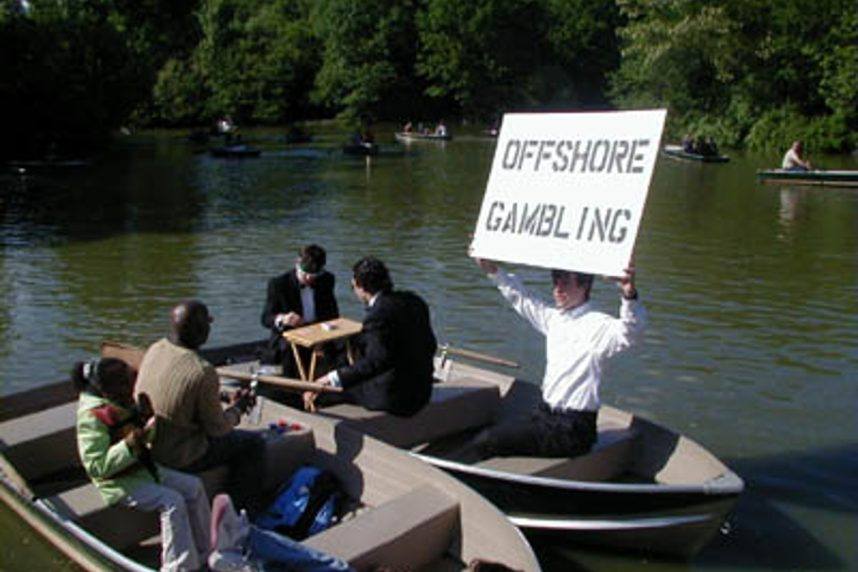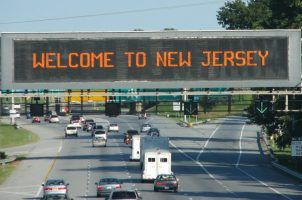Pennsylvania Becomes Latest State to Tell Offshore Casino to Jump Ship
Posted on: September 24, 2024, 09:55h.
Last updated on: September 24, 2024, 10:07h.
Pennsylvania is the latest state to join the crusade against an illegal online casino that operates offshore from accepting bettors from the United States.

The Pennsylvania Gaming Control Board’s (PGCB) Office of Enforcement Counsel recently wrote a cease-and-desist letter to Bovada, a popular offshore casino platform that operates illegally in the US.
The regulatory action came after the iGaming site accepted sports bets on the Little League World Series last month. Williamsport, Pa. is home to the annual youth baseball championship tournament. Betting on youth sports isn’t permitted in any legal sports betting jurisdiction in the country.
Bovada claims to operate lawfully through the online gambling license it holds from the Anjouan Offshore Finance Authority. Anjouan is an autonomous volcanic island that’s part of Comoros off Southeastern Africa. Bovada’s headquarters and operations are based in Curacao, a Caribbean nation known for its favorable regulatory environment for online gaming firms.
Growing List
Pennsylvania joins a growing list of states that have told offshore gambling websites like Bovada to stop allowing players from their jurisdictions access to its online slots, table games, and sportsbook. State gaming regulators say offshore gambling platforms provide no consumer protections like a guarantee that a winning bet will be paid or a customer’s ability to withdraw their account’s funds. Many unregulated sites also lack adequate responsible gaming safeguards.
Along with Pennsylvania, Bovada says on its website it no longer allows players from Colorado, Connecticut, Delaware, Washington, DC, Kansas, Louisiana, Maryland, Nevada, New Jersey, New York, Ohio, or West Virginia. Six of those states — Connecticut, Delaware, Michigan, New Jersey, Pennsylvania, and West Virginia — have legal, regulated iGaming, but Bovada doesn’t possess a license to operate in any of them.
iGaming in the seven states where it’s allowed — with Rhode Island being the seventh market — continues to realize revenue increases.
In 2023, gross gaming revenue (GGR) from legal online casinos hit a record $6.17 billion, up almost 23% year over year. 2024 will mark a new annual record with the introduction of Rhode Island and the other six states reporting higher iGaming revenue at the mid-year point.
Offshore Operations
The American Gaming Association (AGA) represents the legal commercial and tribal gaming industries in the US. The trade group continues to call on state gaming regulators and lawmakers to go after offshore gaming businesses like Bovada.
The AGA has also encouraged the US Justice Department to better enforce the country’s laws and target such illegal gambling enterprises. The AGA has pleaded with the federal law enforcement agency to focus on the largest offshore operators, which, along with Bovada, includes MyBookie and BetOnline.
Illegal operators have been put on notice: their days as a scourge on our nation are numbered,” said AGA President and CEO Bill Miller. “These bad actors prey on vulnerable customers, offer no consumer protections, do not ensure integrity or fair play, and generate no economic benefit for states or tribal nations.”
The AGA estimates that Americans gamble more than $400 billion on illegal sportsbooks and iGaming websites each year. Unregulated gambling is estimated to cost more than $10 billion in tax revenue.
Related News Articles
Black Market Sports Betting in US Has No Panacea in PASPA
Australia Demands Action From Curacao On Offshore Casino Websites
Most Popular
Sphere Threat Prompts Dolan to End Oak View Agreement
This Pizza & Wings Costs $653 at Allegiant VIP Box in Vegas!
MGM Springfield Casino Evacuated Following Weekend Blaze
IGT Discloses Cybersecurity Incident, Financial Impact Not Clear
Most Commented
-
VEGAS MYTHS RE-BUSTED: Casinos Pump in Extra Oxygen
— November 15, 2024 — 4 Comments -
Chukchansi Gold Casino Hit with Protests Against Disenrollment
— October 21, 2024 — 3 Comments -
VEGAS MYTHS RE-BUSTED: The Final Resting Place of Whiskey Pete
— October 25, 2024 — 3 Comments
















No comments yet